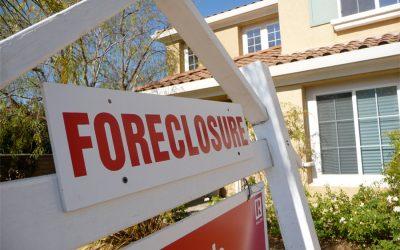
Think you’ve got what it takes to be an elite landlord?
There’s more to landlording than advertising for tenants and collecting rent. But for those who are willing to roll up their sleeves, owning and managing rental properties can be extremely profitable.
In fact, the best landlords and property managers ultimately see the greatest returns. That’s because they’ve perfected the art of landlording—and with some hard work and diligence, you can, too.
Whether you’re an experienced landlord or a newcomer just starting out, here are seven property management skills that separate the best landlords from the middle of the pack.
1. Aggressive Tenant Screening
It starts with the “prologue” to the rental cycle: tenant screening.
Elite landlords don’t take any shortcuts when it comes to finding the perfect tenant to rent to. Along with a full rental application, they run tenant screening reports, including credit reports, criminal background checks, and eviction reports. Then they pull out the magnifying glass and actually read them. (Feel free to start with a free tenant background check to kick off your next tenant screening.)
But even beyond the typical tenant screening and background checks, expert property managers evaluate rental applicants from a more holistic angle—paying attention not only to their financial credibility, but also their cleanliness and trustworthiness.
After all, being financially stable doesn’t make a rental candidate a surefire yes. Look at the big picture of a potential tenant; that includes info you won’t necessarily find on a rental application, such as:
- How long they’ll likely stay
- How well they treat their current home
- Whether they’re polite or argumentative when being interviewed
- How communicative they are, e.g., whether they respond immediately or several hours later
To find out about these details, experienced landlords consult rental references and cross-reference different reports to confirm that their applicant is being honest. They listen to their gut and don’t shy away from digging deeper when something seems fishy.
Of course, just remember that there’s a difference between aggressive tenant screening and outright discrimination. It goes without saying that expert property managers don’t practice the latter.
(article continues below)
How the Free Tenant Background Check Works
2. Maximum Property Management Automation
How do you handle the administrative side of property management?
If you’re still fumbling around with a print ledger and waiting on checks to be mailed from your tenants every month, you’re making it harder than it needs to be.
Welcome to the 21st century, where it’s possible to automate much of property management with an online landlord app. Property management software can make rent collection, income and expense tracking, tax reporting, tenant screening, leasing and more a piece of cake.
Who wants to mess around with paper checks, mailed envelopes, bank runs? Online rent collection is as easy as a five-minute setup, then rent is automatically deposited right into your account for you. Beyond moving the rent money every month, good landlord apps (like, ahem, ours!) automatically store and organize these financial records, removing the need to track them manually.
Checks are quickly becoming obsolete, and for good reason.
Among elite property management skills are knowing how to delegate and how to automate, to minimize their labor and maximize their returns.
3. Legal Preemption
You can never be too safe with protecting your investment from careless and destructive tenants. Even applicants who pass their tenant background check with flying colors can cost you money; landlord-tenant disputes pop up all the time, and it’s the landlord’s job to preemptively address common disputes in their lease agreement.
In other words, to prevent disputes from ever arising.
Elite landlords can start protecting themselves and their properties by including specific lease clauses in their rental agreement that leave no room for argument or interpretation. For example, landlords can include lease clauses that cap the number of residents and overnight guests, or that specify who exactly is responsible for precise maintenance tasks.
Just remember that each state has its own landlord-tenant laws, so a clause required in all lease agreements in one state may be prohibited elsewhere.
Besides using lease contract hacks, expert property managers also protect themselves by keeping records of their rental property’s condition before and after tenants move in.
Big or small, property damage can lead to costly legal disputes. To avoid this, be thorough about documenting your property’s condition. Do a move-in and move-out walk-through with your tenants, and fill out a Move-In/Move-Out Condition Statement with the tenants. Take plenty of photos, as photo evidence helps to resolve any he-said-she-said issues with adamant tenants who deny responsibility for any damage. (As a bonus, our online landlord app lets you upload and store these move-in condition photos for each rental unit, plus each signed lease agreement.)
4. Setting and Defending Boundaries
Perhaps your tenant has a similar background to you, or they simply seem “cool.” Whatever the case, it can be tempting to befriend your tenant.
However, the landlord-tenant dynamic is ultimately a professional relationship and should thus be treated as one. After all, managing a rental property is a business.
When you cross professional boundaries, tenants may feel more comfortable with asking for leeway about paying rent or violating your lease terms. And though you have no obligation to acquiesce, you may simply feel guilty if you’re particularly chummy. Or, alternatively, should your tenants want to renew their lease, you may feel pressure to not raise their rent even though you’re perfectly justified to do so.
That’s why experienced landlords set clear boundaries with their tenants. Along the same lines, they also avoid renting to existing friends.
As a property manager, it’s important to establish professional boundaries between your tenants and yourself. Doing so helps to maintain a respectful relationship and positive rapport, with none of the pressures of being nice for the sake of preserving a friendship.
5. Being Proactive with Eviction Filings
By proactivity, that doesn’t mean that pro landlords are heartless—just that they’re wise about taking immediate action when any grounds for eviction have emerged.
What counts as grounds for eviction?
- Defaulting on rent
- Causing significant property damage
- Unapproved subletting
- Engaging in illegal activities on the property
- Any other lease violation
Remember that rental properties are long-term investments like 401(k)s, annuities, and stocks, which also all involve some level of risk. You can thus think of renting out to tenants much like how investors take risks when picking stocks. However, unlike traditional financial investments, managing a property requires regular physical maintenance and upkeep.
Consequently, tenants who breach rental contracts in any which way present a greater risk to your investment, especially those that seriously damage your property.
The eviction process is a long and tedious one, so if a tenant crosses a line, you’re perfectly justified to prepare filing for eviction. Getting the ball rolling sets expectations for your tenants, and still allows them plenty of time to rectify the violation before the actual removal date.
(article continues below)
6. Tenant Pruning
The average tenant turnover rate nationwide is 47.5%. In other words, 1 in 2 tenants moves out every year, meaning you’ll need to:
- Spend time searching for and screening new rental applicants
- Prepare your unit for rent, e.g., by cleaning and restoring it
- Lose income while the property is vacant
Tenant turnovers are extremely costly.
The quality of your tenants determines both your returns and the work required of you as a property manager. With that in mind, elite landlords make an effort to retain good tenants and conversely, non-renew bad tenants.
To keep tenants happy, the best property managers:
- Treat tenants cordially and respectfully
- Abide by fair housing rules and offer reasonable rental prices
- Respond promptly to maintenance needs
- Consider lease renewal incentives, like gift cards, ecards or smaller rent hikes
As for the bad tenants, they non-renew their lease agreements when the term end is approaching.
Proactive tenant pruning—that is, working to retain solid tenants and non-renew bad ones—protects your investment in the long run by ensuring that only the most responsible tenants stick around.
Read about rental property calculator.
Read about lowest down payment for investment property.
7. Responsive and Recorded Communication
Last but certainly not least, expert landlords communicate promptly and openly with their tenants.
Just as good tenants are responsive, so are good landlords. The best property managers address tenants’ issues and concerns immediately—even for non-urgent matters. Whether it’s a leaking roof or a clogged drain, landlords that respond promptly demonstrate attentiveness to their tenants’ needs. (And this of course helps with good tenant retention!)
Beyond responsiveness, elite landlords are also mindful of renters’ smaller concerns and complaints; they listen carefully rather than brushing them aside. This kind of communication helps to mitigate any potential misunderstandings that might come from property woes that are perhaps out of their control, such as a sudden power failure.
Because memories are faulty, and because some tenants may change their tune over time, elite landlords track all communication. The best landlord apps on the market include messaging and communication tracking, as a service. Just as landlord apps consolidate property financials into one convenient location, they also provide a messaging service to prevent any disputes over who said what.
Final Takeaways
Notice any commonality uniting these property management skills?
They all focus on some aspect of prevention.
Elite landlords and property managers think several steps ahead when it comes to tenant screening, drafting a lease agreement, and actually renting out a property. Doing so helps them dodge professional tenants, avoid the headaches of tenant turnovers and evictions, and ultimately get the greatest returns on their investments.
These property management skills don’t come naturally. The natural inclination for most people is to give their tenant “one more week” for their rent payment, when the tenant approaches them with a sob story.
But the best landlords become the best from training, experience—and learning from other landlords’ mistakes, rather than having to make them all firsthand.
Read llc mortgage loan requirements.
Read does california have rent control?
How are you stepping up your landlord game? Which skills do you currently practice, and which can you get better at?
























Really a fantastic information you have provided to us. Thanks a lot for providing guidelines about the property management skills.